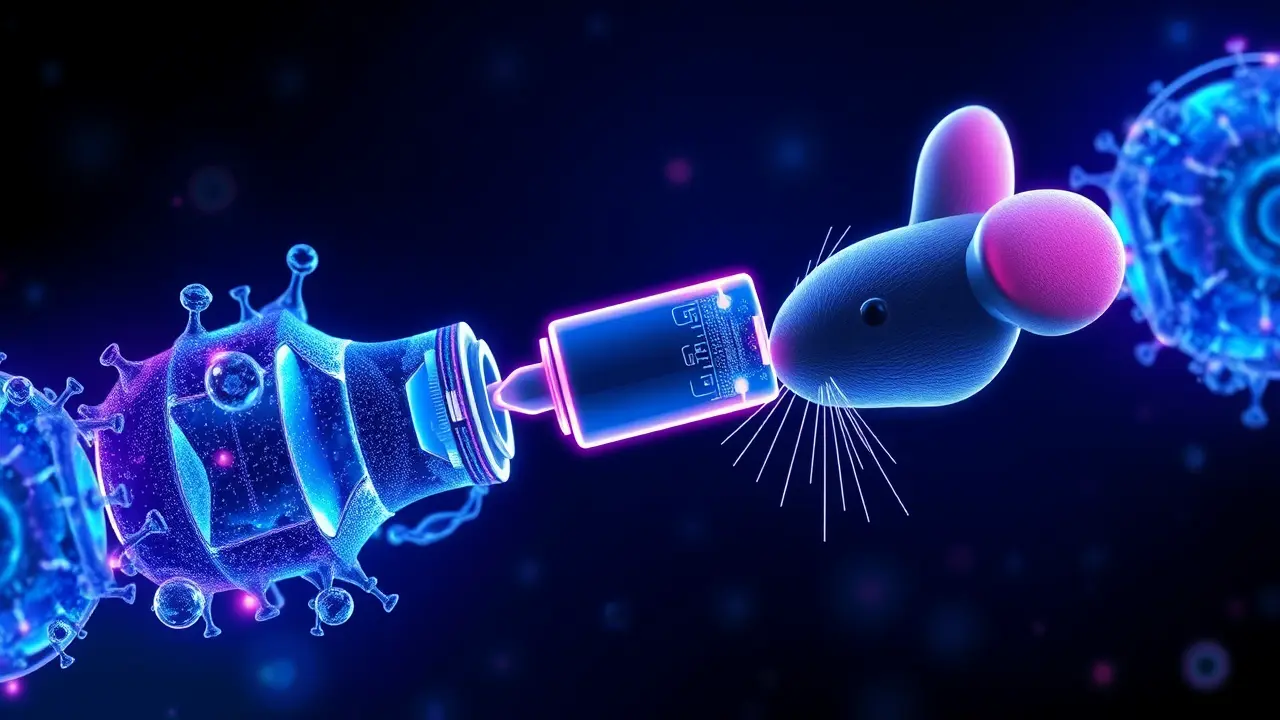This experimental “super vaccine” stopped cancer cold in the lab
In a development that reads like a page torn from a near-future medical thriller, a team of researchers at UMass Amherst has engineered a nanoparticle-based cancer vaccine that has demonstrated staggering efficacy in preclinical models, effectively halting the progression of some of the most notoriously aggressive malignancies. This isn't merely an incremental improvement in immunotherapy; it's a paradigm-shifting approach that functioned as a veritable biological fortress in mouse studies, preventing melanoma, pancreatic, and triple-negative breast cancers with a remarkable success rate where up to 88 percent of the subjects remained entirely tumor-free.The core innovation lies in what the team terms a 'super adjuvant'—a sophisticated lipid nanoparticle delivery system that doesn't just ferry cancer-specific antigens into the body but acts as a powerful alarm bell, triggering a multi-pronged immune assault. This dual-action mechanism is the key to its success, overcoming one of the most significant hurdles in oncology: cancer's notorious ability to evade and suppress the immune system.Where many previous vaccines have struggled to generate a robust and lasting response, this platform orchestrates a powerful activation of T-cells, the body's elite assassins, while simultaneously establishing a long-term immunological memory. This means the immune system isn't just mobilized for a single battle; it's trained and equipped to recognize and eliminate any future attempts at tumor formation or metastasis, the deadly process of cancer spreading to new organs.The selection of the targeted cancers is particularly telling; pancreatic cancer and triple-negative breast cancer have long been graveyards for promising treatments due to their complex biology and resistance to conventional therapies. The fact that this vaccine platform showed such potency against them suggests it's attacking fundamental mechanisms of tumor survival rather than just surface-level symptoms.This breakthrough sits at the convergence of several cutting-edge disciplines: immunology, nanotechnology, and molecular biology. The lipid nanoparticles (LNPs), which gained public fame through their use in mRNA COVID-19 vaccines, are proving to be a versatile platform for a new generation of medicines.Their role here is not just as a passive container but as an active participant in the immune response, engineered to precisely target and stimulate the right immune cells in the lymph nodes, the command centers of our immune defense. The implications of this research, should it successfully translate from the lab to human clinical trials, are profound.We are potentially looking at a future where cancer prevention could be a reality for high-risk individuals, and where treatment shifts from a toxic, broad-spectrum bombardment with chemotherapy to a precise, pre-emptive strike that enlists the patient's own immune system as a permanent sentinel. The road ahead, of course, is long and fraught with the typical challenges of drug development—scaling up production, ensuring safety in humans, and navigating the complex regulatory pathways. Yet, the data emerging from this lab offers a compelling glimpse into a new frontier in the war on cancer, one where we are no longer just fighting the disease, but programming our bodies to reject it entirely from the outset.
It’s quiet here...Start the conversation by leaving the first comment.
